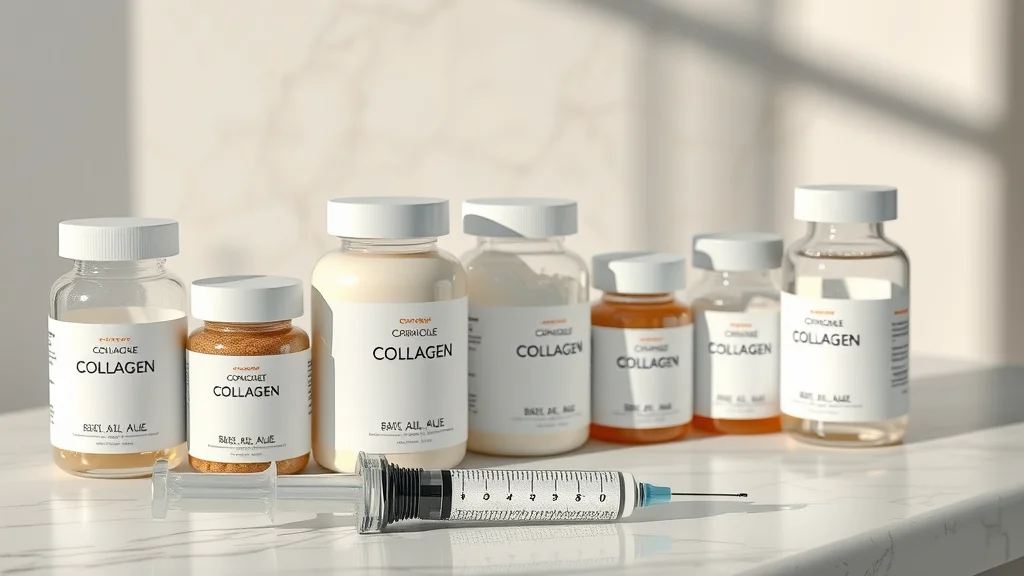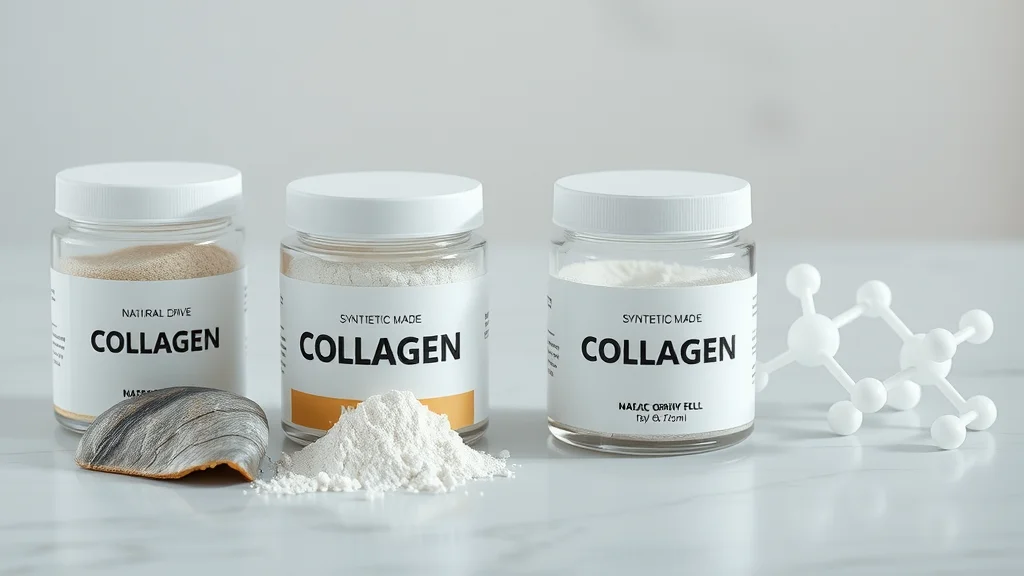Did you know nearly 30% of patients experience at least one side effect after collagen injections? If you’re considering this popular cosmetic procedure or taking collagen supplements, understanding potential risks isn’t just helpful—it’s essential for your safety and results. This detailed guide will reveal the real risks behind collagen treatments, key side effects to look for, and proven ways to protect your health.
A Startling Look at Collagen Treatment Side Effects
"Nearly 30% of patients report at least one side effect after collagen injections, making education critical before undergoing treatment."
Collagen treatment side effects are more common than many realize. Although collagen injections and supplements promise to reduce signs of aging, improve skin elasticity, and possibly ease joint pain, not everyone escapes unscathed. Notably, local reactions such as redness, swelling, and pain at the injection site can occur. For others, the risks extend further—ranging from mild to severe allergic reactions and even gastrointestinal troubles when taking collagen supplements.

These side effects are not simply rumors—they’re documented in medical research and echoed by experienced dermatologists. The need for awareness is heightened, especially as the popularity of these procedures grows. Before you decide on a collagen injection or start taking collagen daily, you must understand both the benefits and the risks. In the following sections, we’ll break down everything you need to know so you can make an informed, safe choice.
Why Discuss Collagen Treatment Side Effects Now?
As the market for collagen injections and supplements booms, so does the need for transparency about side effects. Many are enticed by promises to improve the appearance of skin or delay the aging process, but the surge in popularity has led to an increase in reported negative outcomes. With treatments ranging from dermal fillers to oral supplements, every method has its own risk profile.
The reason to focus on collagen treatment side effects now is simple: Education saves lives and improves outcomes. By learning about possible reactions—from minor skin irritation to severe allergic responses and blood vessel complications—you can confidently weigh your choices, discuss safety with a healthcare professional, and minimize potential harms.
What You’ll Learn About Collagen Treatment Side Effects
Fundamental concepts behind collagen treatments and collagen injections
Comprehensive list of collagen treatment side effects
Expert insights on collagen injections, collagen supplement, and potential allergic reactions
How to assess the safety and longevity of collagen treatments
Guidance for minimizing risks and managing side effects
Understanding Collagen Treatments: An Overview
What Are Collagen Injections and Collagen Supplements?
Collagen is the body’s most abundant protein, forming the main component of connective tissue that gives structure and strength to the skin, joints, and blood vessels. Collagen injections are a type of dermal filler used to smooth wrinkles, plump the lips, and target other signs of aging in areas of the face. These injections may use collagen sourced from animals (commonly bovine collagen), humans, or be synthetically produced.
Collagen supplements typically come in powder or capsule form and are advertised as a way to boost collagen production, improve skin elasticity, and support joint health. Whether you’re taking collagen for cosmetic reasons or for its effects on bone and joint health, both collagen injections and supplements work by delivering additional collagen or stimulating your body’s natural collagen production.
The Science Behind Collagen Supplement and Natural Collagen
Natural collagen, made by your own body, keeps skin taut and joints flexible. But as we age, our body’s collagen production decreases—resulting in visible signs of aging and stiffer joints. Collagen supplements aim to counteract this process by providing readily absorbed collagen peptides that support natural replenishment. Scientific studies suggest that daily supplementation with measured grams of collagen can improve skin hydration and reduce joint pain, although these results vary depending on the type, quality, and source of collagen.

Meanwhile, synthetic collagen in injections may differ chemically and structurally from natural or bovine collagen, possibly affecting how the body reacts. Understanding the difference between natural collagen and synthetic sources is crucial, as it often explains why side effects happen in one group but not another.
How Collagen Treatment Works
When administered directly into the skin, collagen injections act as a scaffold that smooths wrinkles and plumps areas of lost volume. As a cosmetic procedure, collagen is commonly used to improve the appearance of aging skin by restoring elasticity and hydration. Collagen supplements, on the other hand, are digested and absorbed through the gut, intended to support collagen synthesis from within. Each method carries its own potential side effects—from inflammation at the injection site to indigestion and bloating with oral supplements.
The effectiveness and risks of both forms depend on many factors, including the source and purity of collagen, the skill of the healthcare professional, and the patient’s unique biological response. The following table compares key differences to help you decide which method aligns best with your goals and tolerance for risk.
Comparison of Collagen Injections vs Collagen Supplements | ||||
Treatment |
Areas Treated |
Method |
Typical Use |
Longevity |
|---|---|---|---|---|
Collagen Injections |
Face, Lips, Soft Tissue |
Direct Injection (Dermal Filler) |
Reduce wrinkles, plump skin, cosmetic corrections |
3–6 months |
Collagen Supplements |
Systemic (Skin, Joints, Blood Vessels) |
Oral (Powder, Capsule) |
Improve elasticity, joint pain, general wellness |
Ongoing (daily) |
The Effects of Collagen: Collagen Treatment and Collagen Supplement
Positive and Intended Effects of Collagen Treatments
Collagen treatments, when successful, can dramatically improve skin’s appearance—minimizing fine lines, increasing plumpness, and providing a natural-looking volume to areas of the face most affected by aging. Many who regularly use collagen supplements report improved skin hydration and flexibility, as well as some relief from joint pain. These effects of collagen are the main reason the popularity of collagen continues to rise among both young and mature adults.

While the benefits can be significant for some people, it’s important to note these results are never guaranteed and depend on individual biology, dosage, and consistency of use. Additionally, the scientific community is divided, with some research suggesting more modest outcomes than promotional materials imply.
Effects of Collagen on Skin, Joints, and Blood Vessel Health
The effects of collagen extend beyond cosmetics. For the skin, regularly taking collagen supplements is linked with increased skin elasticity and hydration, plus a reduction in visible signs of aging. For joints, some studies show that collagen may improve cartilage strength, reduce inflammation, and ease mobility issues—making it a potential supplement for those struggling with joint pain or the natural breakdown of connective tissue.
Collagen’s role in blood vessel health shouldn’t be ignored—since it provides flexibility and resilience in the vascular walls. However, these systemic effects typically require long-term, consistent intake, and are not immune to side effects.
Comprehensive Guide to Collagen Treatment Side Effects
Local reactions after collagen injection: redness, swelling, pain
Allergic reactions: mild to severe (itchiness, rashes, difficulty breathing)
Gastrointestinal issues: diarrhea, bloating after collagen supplement use
Lip swelling, particularly after facial collagen injections
Risk of infection at injection site
Rare risks—blood vessel compromise, granuloma formation
Systemic side effects: fatigue, aches, fever

The above list covers the most commonly reported side effects of collagen therapy. Localized reactions, such as redness or swelling at the injection site, typically resolve within a few days but can persist longer in sensitive individuals. Allergic reactions may present soon after treatment or be delayed, ranging from a mild rash to more dangerous symptoms like difficulty breathing—requiring immediate medical attention.
Gastrointestinal side effects like diarrhea or bloating most often occur with oral collagen supplements and are usually alleviated by adjusting the dose or switching to a different formulation.
Delving Deeper: Allergic Reaction and Other Risks
Recognizing Allergic Reactions to Collagen Injections
Allergic reaction is among the most serious risks associated with collagen injections. Symptoms may appear as immediate swelling, intense itching, rash, or, in severe cases, trouble breathing due to airway swelling. These reactions may stem from the body’s response to bovine collagen or additives in the injection. Most reputable clinics require a skin test (patch test) to identify potential sensitivity but allergic reactions can still develop later, especially if impurities or synthetic additives are present.
Mild allergic reactions may cause only local discomfort, while systemic reactions pose a life-threatening emergency. Seeking care quickly can prevent complications like blood vessel compromise or widespread granuloma (inflammatory nodule) formation.
Managing Side Effects and When to Seek Medical Help
If you experience side effects after a collagen injection or supplement, it’s crucial to monitor your symptoms closely. Most minor reactions, such as swelling or mild GI upset, resolve on their own. But if symptoms worsen—especially if you experience shortness of breath, severe swelling, or high fever—seek immediate help from a healthcare professional.
"Always perform a patch test to minimize allergic reaction before starting collagen treatment." —Dr. A. Sullivan, Dermatologist
Document any adverse effects, inform your medical provider promptly, and be honest about past allergies or reactions to cosmetic procedures. Prevention and early action are the best strategies for reducing risk.
Top Factors That Increase Risk of Collagen Treatment Side Effects
Patient History and Allergic Reactions
Your medical history is one of the strongest predictors of potential collagen treatment side effects. Individuals with known allergies, especially to beef (bovine collagen), eggs, or previous injectable fillers, have a higher chance of experiencing an allergic reaction. Previous experiences with dermal fillers or adverse reactions to similar substances should be discussed openly with your provider.
Additionally, people with autoimmune or connective tissue diseases may be more susceptible to complications. Always inform your provider of all medications, supplements, and past reactions before undergoing any new cosmetic procedure.
Quality of Collagen Supplement and Collagen Injections
The purity, source, and manufacturing standards of your collagen supplement or injectable product profoundly impact your risk of side effects. Poorly regulated, low-quality products can harbor impurities that provoke immune reactions or infection. High-quality, pharmaceutical-grade collagen—whether natural or synthetic—minimizes these dangers.

Always source products from reputable brands or clinics, and look for third-party certification to guarantee safety. The difference in risk between trustworthy and unreliable providers is significant and can mean the difference between a smooth recovery and serious complications.
Injection Techniques and Experience of Provider
The success and safety of collagen injections depend not just on the product, but on the expertise of the practitioner. Improper injection technique can lead to more severe local reactions, blood vessel compromise, or even tissue damage, further magnifying risks. Make sure your healthcare provider is board-certified, uses sterile equipment, and has extensive experience specifically with collagen injections.
Don’t hesitate to ask about their training, track record, and procedures for managing side effects. A skilled provider will emphasize safety protocols—like pre-procedure skin tests and emergency response plans—helping you avoid preventable disasters.
Examining Common Collagen Treatment Side Effects: Real-World Data
Frequencies and Durations of Most-Reported Side Effects (Clinical Studies) | |||
Side Effect |
Type of Treatment |
Frequency |
Average Duration |
|---|---|---|---|
Redness/Swelling |
Collagen Injections |
25–30% |
2–5 days |
Pain at Injection Site |
Collagen Injections |
20–25% |
1–3 days |
Diarrhea/Bloating |
Collagen Supplements |
10–18% |
1–7 days (varies) |
Allergic Reactions |
Both |
2–4% |
Variable |
Lip Swelling |
Facial Injections |
5–8% |
1–4 days |
Fatigue, Fever, Aches |
Both |
1–2% |
Up to 1 week |
As shown, most collagen treatment side effects are mild and self-limiting. However, the numbers also highlight that a significant minority experience symptomatic discomfort that can last several days or more.
Case Studies: Collagen Injection Gone Wrong
Though most individuals experience only mild symptoms, serious cases occur. For instance, reports exist of severe allergic reactions impacting breathing, or infections at the injection site due to improper technique. Granuloma formation, though rare, can occur months after treatment and may require minor surgery.
Real-world stories reinforce the importance of careful provider selection and monitoring for side effects—especially for those with known allergies or history of adverse reactions to injectables.
Natural Collagen vs. Synthetic Collagen Treatment Side Effects
Are Side Effects More Likely with Synthetic Collagen Supplements?
Natural collagen sourced from animals (bovine, marine, porcine) is generally well tolerated but not risk-free—especially for those with protein-specific allergies. Synthetic collagens, though produced to minimize allergens, can introduce new risks due to their chemical structure or residual manufacturing contaminants.

Some research suggests side effects may be slightly higher with synthetic formulations, especially if impurities trigger the immune system. The safest option will always be a product that is high-purity, third-party tested, and administered by trained professionals.
Understanding How Purity Impacts Effects of Collagen
The presence of impurities can dramatically increase the risk of allergic reactions, infections, and other adverse effects. High-purity, pharmaceutical-grade collagen undergoes rigorous filtration and testing—whereas lower-grade supplements or poorly regulated injectable products are more likely to be linked to side effects and complications.
As a rule, the better the quality of your collagen source (natural or synthetic), the fewer risks you face. Always check sourcing, purity certification, and clinical experience of your provider or supplement company.
How to Reduce and Manage Collagen Treatment Side Effects
Research your options for collagen injections and collagen supplements
Consult a qualified practitioner before taking collagen
Monitor for immediate and delayed side effects post-treatment
Keep a record of any adverse effects for proper medical review
Prioritize high-quality, reputable collagen supplement brands
Proactive steps—such as skin testing, seeking medical advice, and choosing certified products—are your best defense against serious problems. If you notice any worrying side effects after your treatment or while taking collagen daily, act early and involve healthcare professionals for peace of mind.
What are the side effects of collagen therapy?
Answer: Collagen Treatment Side Effects Overview
Collagen therapy side effects include both local and systemic reactions such as redness, swelling, pain, allergic reactions (ranging from rashes to severe breathing problems), GI symptoms (diarrhea, bloating), lip swelling (primarily after facial collagen injections), and rare, serious outcomes like infection or vascular compromise. Not everyone experiences these, and reactions vary by method, product quality, and individual history. If you suspect any side effect, especially after a cosmetic procedure, consult your healthcare professional promptly.
Is collagen treatment safe?
Answer: Review of Safety and Collagen Treatment Side Effects Data
Collagen treatments are generally safe for most people when conducted by trained professionals using certified products. However, safety is never guaranteed, and a significant minority report mild to moderate side effects. Severe problems are rare but can occur, particularly in those with allergies or from unregulated products. Always perform a patch test, review your medical history with a professional, and report any side effects immediately for the best outcomes.
Can collagen cause diarrhea?
Answer: Investigating Gastrointestinal Side Effects of Collagen Supplement
Yes, collagen supplements can cause diarrhea or bloating in some individuals. These gastrointestinal side effects are typically dose-related and may resolve after a few days or by switching brands. Lowering your daily intake or choosing hydrolyzed collagen supplements often helps reduce discomfort. If symptoms are persistent or severe, seek advice from your provider.
Can collagen cause lip swelling?
Answer: Common Collagen Injection Side Effect—Lip Swelling
Lip swelling is a common collagen injection side effect, especially when targeting areas of the face like the lips. This usually results from tissue response to the injected material. Swelling generally subsides within a few days, but severe or prolonged symptoms could indicate an allergic reaction or infection and should be evaluated by a healthcare professional.
Key Takeaways on Collagen Treatment Side Effects
Collagen treatment side effects range from mild to severe
Allergic reactions are the most concerning but also preventable
Proper product selection and medical oversight minimize risks
Gastrointestinal side effects often resolve with supplement adjustment
Frequently Asked Questions About Collagen Treatment Side Effects
Does collagen supplement cause weight gain? Most studies show collagen supplements do not cause weight gain; however, additives in low-quality brands could contribute. Always check the label.
How can I tell if I’m allergic to collagen injections? Request a skin test or patch test prior to injection. If you develop itching, swelling, or trouble breathing after treatment, contact a doctor immediately.
Are side effects of collagen treatment immediate or delayed? Both are possible. Local reactions often happen within hours, while some allergic or systemic reactions may take days or weeks.
What should I do if I experience severe side effects? Stop treatment and seek emergency medical attention. Bring a record of your symptoms and details about the product used.
Which is safer: collagen injection or oral collagen supplement? Oral collagen supplements generally pose lower risk, but both forms can cause side effects. Always consult a healthcare professional before starting either.
In Summary: Safe Practices Regarding Collagen Treatment Side Effects
"Awareness is your best defense against collagen treatment side effects—never start a new regimen without preparation and proper guidance."
Stay informed, ask questions, and prioritize product and provider quality for the safest experience with collagen treatment of any kind.
 Add Row
Add Row  Add
Add 




Write A Comment